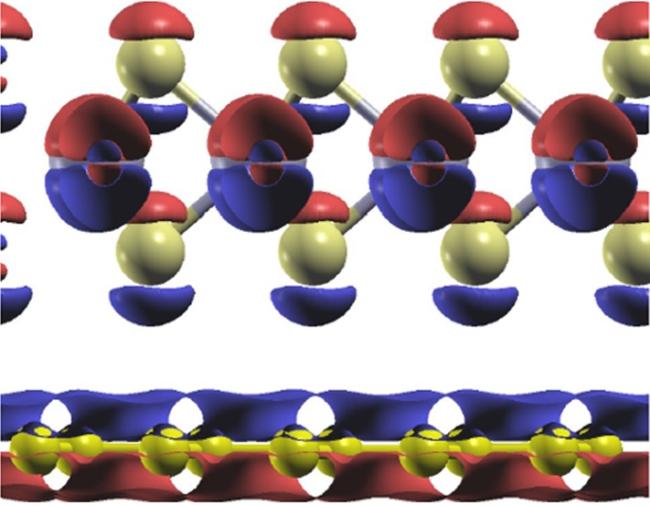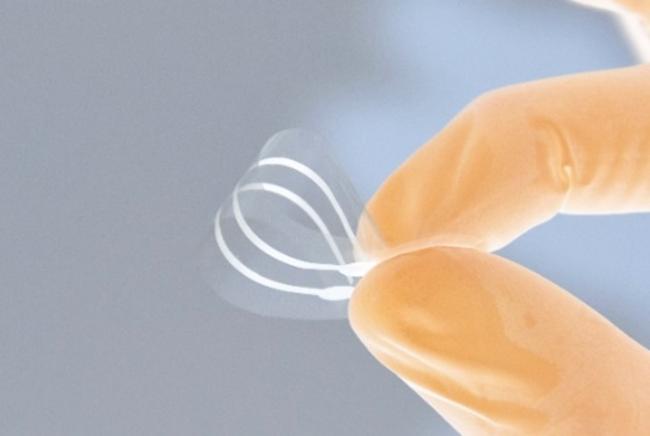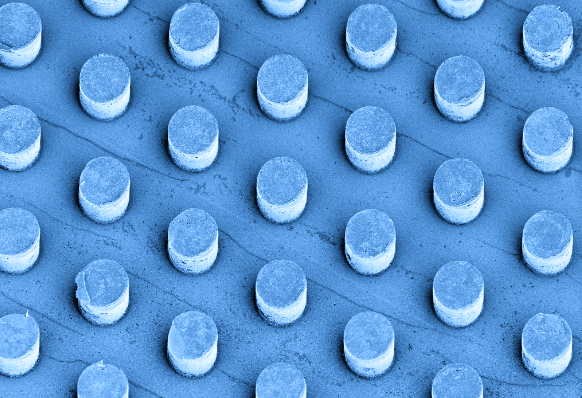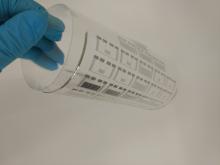
Flexible Devices Group
The "Flexible Devices" group was founded in 2019 and has a strong research focus on flexible sensors and electronics. With regard to trends such as the Internet of Things and Industry 4.0, the target applications include geometry-adaptive adhesive tapes, medical technology and wearables through to robot skin.
In addition to investigating suitable substrate materials, the working group focuses on the development of suitable technologies to realize electronic and sensor components on these flexible substrates. This requires the application and structuring of suitable electrical conductors using various processes such as PVD and CVD deposition, patterning based on lithographic and wet chemical processes, as well as additive technologies such as printing processes.
The goals are to improve the performance of these components, to make production more efficient in terms of resources and costs, and to open up new areas of application.
Would you like to work with us or cooperate with us? Then please contact Franz Selbmann directly (franz [dot] selbmann [at] esm [dot] tu-freiberg [dot] de).
Research and Expertise
Projects
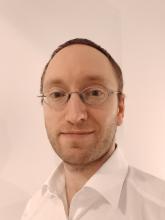
M. Sc. Franz Selbmann
Franz Selbmann completed his studies in electronic and sensor materials at Freiberg University of Mining and Technology in 2015 with a master's thesis in the field of parylene encapsulation at the Fraunhofer Institute for Electronic Nanosystems ENAS. After a research stay at Tohoku University in Sendai, Japan, in 2016, where he focused on the development of polymer-based MEMS, he began his doctoral thesis on the development of parylene as a material for microsystems and flexible devices in close collaboration with the Fraunhofer Institute for Electronic Nanosystems ENAS in Chemnitz. Since 2019, he is Head of the "Flexible Devices" group at the Institute for Nanoscale and Bio-based Materials at TU Freiberg. His research interests are in the field of advanced materials and integration technologies for intelligent systems and their applications.
E-Mail: franz [dot] selbmann [at] esm [dot] tu-freiberg [dot] de (franz[dot]selbmann[at]esm[dot]tu-freiberg[dot]de)
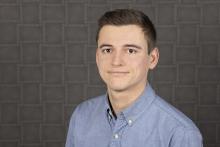
Dipl.-Ing. Martin Kühn
Martin Kühn received his diploma in nanotechnology from TUBAF in September 2021. During his studies, he worked on various silane coupling agents and their deposition methods for targeted surface modification and subsequent step-by-step coating. In collaboration with the Fraunhofer Institute for Electronic Nano Systems ENAS in Chemnitz, he began his doctorate in September 2023 in the "Flexible Devices" group at the Institute for Nanoscale and Bio-based Materials at TUBAF.
This project is funded as part of an industrial doctorate by the European Social Fund Plus (ESF Plus) and the Free State of Saxony, respectively, as well as the Fraunhofer Institute for Electronic Nano Systems ENAS in the funding period from 2023 to 2027.
E-mail: martin [dot] kuehn [at] doktorand [dot] tu-freiberg [dot] de
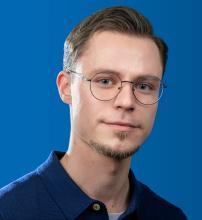
Dipl.-Ing. Florian Glauche
Florian Glauche completed his diploma in nanotechnology at TUBAF in August 2023. Through his academic training, he acquired in-depth knowledge in the development and characterization of functional micro- and nanostructures as well as expertise in the structuring of biocompatible polymers such as parylene using thermoforming processes for flexible electronics. In September 2023, he began his industrial doctorate on the fabrication of flexible, adhesive and functional microstructures in the "Flexible Devices" working group at TUBAF in collaboration with the Fraunhofer Institute for Electronic Nano Systems ENAS in Chemnitz.
This project is funded as part of an industrial doctorate by the European Social Fund Plus (ESF Plus) and the Free State of Saxony, respectively, as well as the Fraunhofer Institute for Electronic Nano Systems ENAS in the funding period from 2023 to 2027.
E-mail: florian [dot] glauche [at] doktorand [dot] tu-freiberg [dot] de
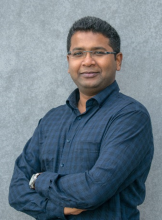
M. Sc. Karman Frances Raj George Maria Selvam
Karman Selvam completed his master's degree in the field of micro and nano systems at Chemnitz University of Technology and in his master's thesis he dealt with the "Modeling (FE) and characterization (electrics, acoustics) of CMUTs (Capacitive Micromachined Ultrasound Transducer)". Since 2019 he has been doing his doctorate in the "Flexible Components" group at the Institute for Nanoscale and Bio-based Components. His doctoral thesis is being carried out in cooperation with Fraunhofer ENAS and deals with the development of polymer capacitive ultrasonic transducers (CMUT) for gas sensing.
This project was funded as part of an industrial doctorate by the European Social Fund (ESF) and the Free State of Saxony, respectivley, as well as the Fraunhofer Institute for Electronic Nano Systems ENAS in the funding period from 2019 to 2022.
Email: Karman-Frances-Raj [dot] George-Maria-Selvam [at] doktorand [dot] tu-freiberg [dot] de

M.Sc. Ateeb Shaban
Ateeb Shaban received his Bachelor's degree in Nanotechnology from SRM University in Chennai, India in 2017, after studying as an exchange student at Umea University in Umea, Sweden in 2015 and as a visiting student at Hamamatsu University in Shizuoka, Japan in 2016. After completing his Master's degree in Materials Engineering at the University of Alberta, Canada in 2019, he joined the Flexible Devices working group at the Institute for Nanoscale and Bio-based Materials in 2020 and started his PhD thesis on "Structural and Electronic Properties of MoS2 and Graphene: A Comparative Analysis of MoS2/Graphene Hybrid Structures and Thin Flake Formation".
This project was funded by a state scholarship from the Free State of Saxony in the funding period from 2020 to 2023.
E-mail: ateeb [dot] shaban [at] doktorand [dot] tu-freiberg [dot] de
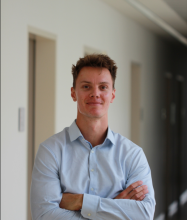
M.Sc. Fiete Stoll
Fiete Stoll completed his master's degree in biomedical engineering at Chemnitz University of Technology in December 2022 with a thesis on reactive bonding with biocompatible integrated multilayers. Since then, he has been working on highly topical subjects such as process optimization for hybrid bonding and sophisticated data analysis involving machine vision and AI. His current doctoral project is dealing with ultra-high vacuum in microcavities, including the necessary processes, materials, simulations and analysis methods.
This project is funded as part of an industrial doctorate by the European Social Fund Plus (ESF Plus) or the Free State of Saxony, respectively, as well as the Fraunhofer Institute for Electronic Nano Systems ENAS in the funding period from 2024 to 2028.
E-mail: fiete [dot] stoll [at] doktorand [dot] tu-freiberg [dot] de
